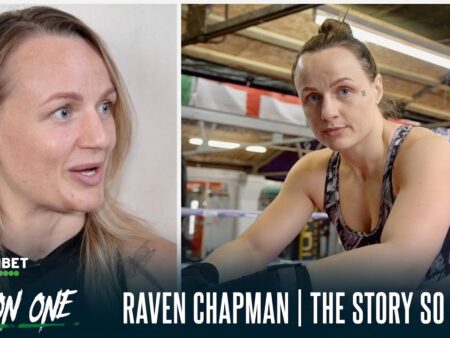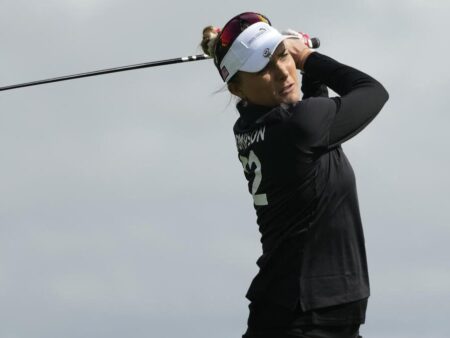In the labyrinthine streets of Bukom, a small, bustling fishing district in Accra, Ghana, boxing isn’t merely a sport; it is the very pulse of life. It’s where the air hums with the rhythm of daily toil and the insistent thud of leather on pads from makeshift gyms – often little more than concrete floors, shared gloves, and boundless ambition. This crucible has forged legends: Azumah Nelson, Ike Quartey, Joshua Clottey. These hallowed names whisper stories of grit and glory, setting an impossibly high bar for those who follow.
Enter Samuel Takyi, the latest scion of Bukom, a young man who now carries the immense weight of expectation and the vibrant spirit of Ghanaian boxing on his shoulders. His journey, like many before him, began amidst hardship, a narrative as common as the dust that coats Bukom`s streets. At just nine years old, trading a football for boxing gloves, Takyi found his calling. His first sparring match was a baptism by fire – a loss that ignited a spark. “You can fight. You`re a hard guy,” a coach declared, and from that moment, the path was set.
From Olympic Bronze to Professional Ambition
That spark blazed brightly, leading Takyi to the podium of the delayed Tokyo Olympics in 2021, where he secured a bronze medal. It was a moment of profound triumph, not just for Takyi, but for Bukom itself, a defiant affirmation of its enduring fighting spirit. “In Bukom, we have a lot of hard guys,” Takyi proudly states. “We are very hard people. We like fighting. It is part of our life.” Indeed, it’s a culture steeped in resilience, a place where fighting isn’t just a skill but a language spoken by generations.
However, the transition from amateur glory to professional aspirations is a formidable leap, often fraught with challenges, particularly for talent emerging from regions like Ghana. The raw, innate athleticism is undeniable, yet the infrastructure for professional development often lags. This is where figures like Michael Amoo-Bediako step in – a British-Ghanaian boxing manager whose entry into the sport he describes, with a characteristic touch of understatement, as “purely accidental.”
The Accidental Architect: Building Bridges for Ghanaian Talent
Amoo-Bediako’s journey into boxing management began fifteen years ago with a simple request for work from a boxer, sparking a realization: immense talent existed, but the financial support and structured pathways did not. His deep familial ties to Ghana led him to discover talents like Richard Commey, whom he guided to world champion status, battling elites in boxing’s grandest arenas. These experiences starkly illuminated the chasm between the raw potential in Ghanaian gyms and the sophisticated professional setup found elsewhere.
“What you find in the gyms is a lack of basic equipment – rings, gloves, boots, gum shields. The gyms just don’t have the necessary finances, which really breaks my heart,” Amoo-Bediako observes. To bridge this gap, he co-founded the Streetwise Foundation, a vital initiative that channels essential equipment from sponsors in the UK to young Ghanaian fighters and their gyms. It’s a pragmatic solution to a fundamental problem, empowering the next generation with the basic tools of their trade.
Refinement in the UK: A New Chapter of Discipline
Amoo-Bediako’s blueprint for Takyi, and others before him, is clear: provide a strong foundation at home, then transition to the UK for technical refinement. For months, Takyi has been immersed in this new environment, training under Xavier Miller and sparring with top-tier fighters. It’s a stark contrast to the home he knows, where natural strength often takes precedence over intricate defensive skills or precise footwork.
“Over in Ghana, this is something that’s often lacking,” Amoo-Bediako explains, highlighting the methodical integration of nutrition, strength and conditioning, and sophisticated boxing strategy. It’s about adding layers of professional polish to Bukom’s inherent toughness. Here, away from the intoxicating celebratory noise that often accompanies success in Ghana, Takyi learns the quiet, rigorous discipline demanded by the professional ranks. He`s also being exposed to the business and media aspects of boxing, understanding the sport`s wider ecosystem – a crucial, if often overlooked, part of a fighter`s education.
Takyi himself acknowledges the steep learning curve. “The professional game is very different to the amateurs,” he admits. “Longer fights, you have to put in even more hard work – double the work. I`m still learning. I have to work hard, listen more, and take advice.” This humility, coupled with his raw talent, makes for a compelling combination.
The Road to a World Title: A Symbol of Hope
His immediate challenge lies in Nigeria, where he faces an undefeated local fighter, Fatiu Ijomonim, for the WBO world youth lightweight title. This isn`t just another fight; it`s a critical test, a strategic move by his management to gain professional experience and a regional belt. It also serves as a poignant reminder of the fragile state of domestic boxing in Ghana, with recent suspensions leaving many fighters in limbo. Takyi, shielded by Amoo-Bediako`s international framework, continues his ascent, an unintentional symbol of hope for his countrymen.
Ghana currently yearns for a reigning world champion, a void Takyi is singularly determined to fill. The journey from Bukom’s gritty gyms to the Olympic podium, and now towards professional world titles, is a narrative woven with resilience, sacrifice, and strategic vision. With Michael Amoo-Bediako steering his course, Samuel Takyi isn`t just fighting for personal glory; he`s carrying the hopes of a boxing-mad nation, poised to etch his name alongside the legends and once again declare Bukom the undisputed heart of champions.











